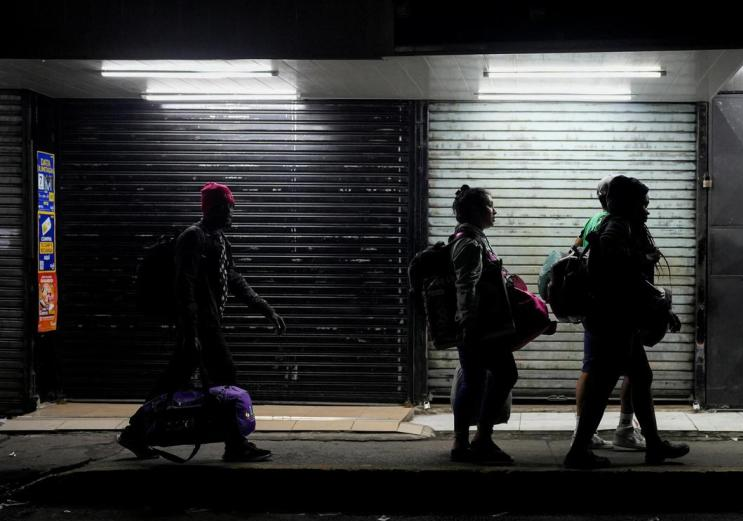
The Trump administration in the United States has significantly tightened immigration policies, affecting the national labor market. Analysis shows that over 1.2 million immigrants have vanished from the US labor market in the first seven months of this year.
ABC reported on Monday (September 1) that according to preliminary data from the US Census Bureau analyzed by the Pew Research Center, the US labor market lost more than 1.2 million immigrants from January to July this year, including both illegal overstayers and legal residents.
Stephanie Kramer, a senior researcher at the Pew Research Center, pointed out that immigrants make up nearly 20% of the U.S. workforce. Data shows that 45% of practitioners in agriculture, fishery and forestry are immigrants. The proportion of immigrants from the construction industry has reached 30%, while that from the service industry is approximately 24%.
Kramer said, "It is still unclear how many people left the country voluntarily, seeking other opportunities or avoiding deportation, and how many left due to deportation, underreporting or other technical issues behind the decline in the number of immigrants since January." However, we believe that the preliminary data showing a negative net migration figure is accurate and sufficient to prove that the population decline is indeed a real phenomenon.
When Trump was running for president, he promised to deport millions of immigrants who were working illegally in the United States. He claimed that the deportation operation would focus on "dangerous criminals", but among the immigrants detained by the Immigration and Customs Enforcement, the majority have no criminal record. Meanwhile, the number of people crossing the border illegally under Trump's policies has dropped significantly.
Pia Orrennius, a labor economist at the Federal Reserve Bank of Dallas, pointed out that at least 50% of job growth in the United States is typically contributed by immigrants. According to our observation, the border migration wave has basically come to a halt. Over the past four years, millions of immigrants have poured in precisely in this way. The decline in the number of immigrants has greatly affected the ability to create jobs.
Farms in various states of the United States are about to enter the harvest season, but many farm owners are worried that there might be a shortage of labor then.
Elizabeth Rodriguez, the advocacy director of the National Farm Workers Affairs Department, said that the enforcement actions of immigration authorities on farms, businesses and construction sites have brought all activities to a standstill. May is the peak season for watermelons and Hami melons. Due to law enforcement actions, the harvest was delayed, and a large number of crops were eventually wasted.

Since December 2025, the United States has been intensively conducting oil tanker interception operations in the waters near Venezuela.
Since December 2025, the United States has been intensively…
When U.S. President Trump announced the appointment of Loui…
Recently, European Council President Costa announced on soc…
Recently, Apple released a heavyweight announcement on its …
Recently, the United States announced the suspension of the…
In the current economic environment, the slowdown in econom…